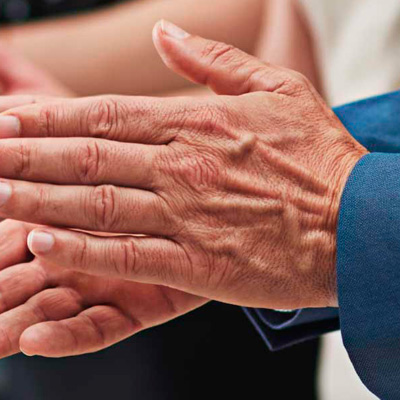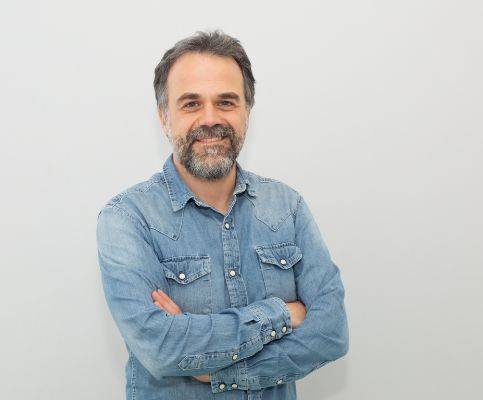

DIEGO ARDURA MARTÍNEZ
SECR. DPTO. MÉTODOS INVES.Y DIAGN.EDUCAC.I
PROFESOR TITULAR UNIVERSIDAD
MÉTODOS DE INVESTIGACIÓN Y DIAGNÓSTICO EN EDUCACIÓN I
FACULTAD DE EDUCACIÓN
(+34) 91398-7287
Academic Information
PhD in Education. UNED (2021)
PhD in Chemistry. University of Oviedo (2007)
Master in Innovation and Research in Education. UNED (2016)
Pedagogical aptitude course. University of Oviedo (1996)
Bachelor in Chemistry (Physical Chemistry). University of Oviedo (1995)
Research activity
The research I carry out focuses mainly on the study of error self-management, self-regulated learning and metacognition in face-to-face and online education. In addition, I study the effects of motivation towards science on performance and on the risk of dropping out from science options in secondary shool students.
Professional experience
I am currently a professor at the Department of Research and Diagnosis Methods in Education I (MIDE I) of the Faculty of Education at UNED. Throughout my professional career, I also worked as a science teacher in secondary education. During this period, I acted as coordinator of innovation projects and bilingual programs.
Educational management experience
I am currently the Academic Secretary of the Faculty of Education at UNED.
Teaching
Asignaturas de Grado:
- 6301401- - TRABAJO FIN DE GRADO (EDUC. SOCIAL)
- 63024013 - TRABAJO FIN DE GRADO (PEDAGOGÍA)
- 63901052 - ESTADÍSTICA APLICADA A LA EDUCACIÓN
- 63032047 - INVESTIGACIÓN EN CONTEXTOS ESCOLARES
Asignaturas de Máster:
- 23302028 - DISEÑOS DE INVESTIGACIÓN EN EDUCACIÓN
- 23302189 - METODOLOGÍA DE LA INVESTIGACIÓN CUANTITATIVA
- 23308128 - TFM EN INTERVENCIÓN EN CONTEXTOS SOCIALES
- 23302013 - INTRODUCCIÓN A LA INVESTIGACIÓN EN EDUCACIÓN
Programas de Doctorado:

N.º de tramos reconocidos de evaluación docente
1Research
INVESTIGATION GROUPS
- ESPYD: Educación Superior Presencial y a Distancia The group's work focuses on the analysis of the mission, evolution and quality of the face-to-face and distance University +info
- Voice, music and language lab Under the umbrella of gender studies and women's health education, this team studies the voice and language of women during menopause, with the aim of evaluating the impact of menopause on women's working conditions and their quality of life +info
PROYECTOS DE INVESTIGACIÓN
- BiMo The aim of the project is to design a set of three different MOOCs (Massive Online Open Courses) addressing the themes of the benefits and importance of bilingual education, bilingualism and CLIL in school education ES01-KA201-081917) +info
- APPrendeRTi Early detection and intervention in Specific Learning Difficulties (SLD) from the RTi model (PID2019-107201GB-I00)
N.º de tramos reconocidos de actividad investigadora
1Publications
-
ONLINE PUBLICATIONS
-
PUBLICATIONS IN MAGAZINES
Ardura, D., Zamora A. y Pérez-Bitrián, A. (2021) The role of motivation on secondary school students' causal attributions to choose or abandon chemistry. Chemistry Education Research and Practice, 22, 43-61.
Lã, F.M.B. and Ardura, D. (2020). What voice-related metrics change with menopause? A systematic review and a meta-analysis study. Journal of Voice (in press).
Ardura, D. y Galán, A. (2020). Calibración del resultado de una prueba escrita en estudiantes de ciencias de secundaria: el efecto del sexo. Revista de Investigación Educativa, 38(2), 329-344.
Ardura, D. y Galán, A. (2019). The interplay of learning approaches and self-efficacy in secondary school students’ academic achievement in science. International Journal of Science Education, 41(13), 1723-1743.
Ardura, D. y Pérez-Bitrián, A. (2019) Motivational pathways towards academic achievement in physics & chemistry: a comparison between students who opt out and those who persist. Chemistry Education Research and Practice, 20, 618-632.
Ardura, D. y Pérez-Bitrián, A. (2018) The effect of motivation on the choice of chemistry in secondary schools: adaptation and validation of the Science Motivation Questionnaire II to Spanish students. Chemistry Education Research and Practice, 19, 905 – 918.
Zamora, A., Suárez, J.M. y Ardura, D. (2018). A model of the role of error detection and self-regulation in academic performance. The Journal of Educational Research, 111(5), 595-602.
Zamora, A., Suárez, J.M. y Ardura, D. (2018). Error detection and self-assessment as mechanisms to promote self-regulation of learning among secondary education science students: A descriptive and quasi-experimental study. The Journal of Educational Research, 111(2), 175-185.
Zamora, A., Suárez, J.M. y Ardura, D. (2018) El uso de los errores como herramienta del aprendizaje autorregulado en estudiantes de secundaria. Aula abierta, 47(2), 229-236.
Ardura, D. y Zamora, A. (2014), ¿Son útiles entornos virtuales de aprendizaje en la enseñanza de las ciencias secundaria? Evaluación de una experiencia en la enseñanza y el aprendizaje de la Relatividad. Revista Eureka sobre enseñanza y divulgación de las Ciencias, 11(1), 83-93.
Zamora, A. y Ardura, D. (2014) ¿En qué medida utilizan los estudiantes de física de Bachillerato sus propios errores para aprender? Una experiencia de autorregulación en el aula de secundaria. Enseñanza de las Ciencias 32(2), 253-268.
